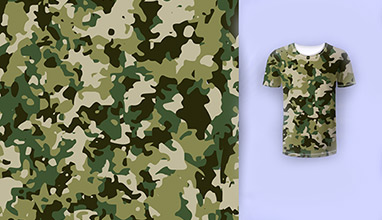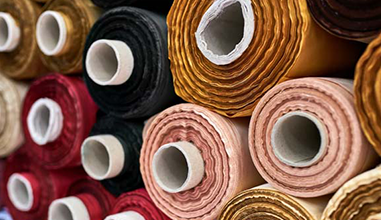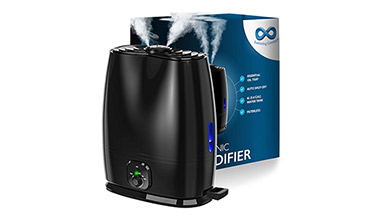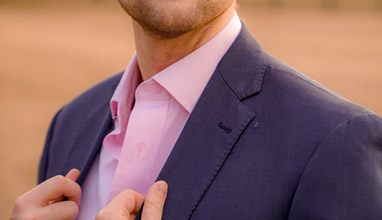Does Stress Cause Hair Loss in Mature Women?
With age, it’s natural to feel concerned and wonder how stress can harm your body. Stress can affect almost every system of our body, our hair being no exception. You may have heard about the relationship between stress and hair loss, but is it true? Many studies demonstrate that significant emotional stress is linked to a type of hair loss called telogen effluvium. Here is everything you need to know about stress-related hair loss and how you can encourage hair growth after a stressful event.
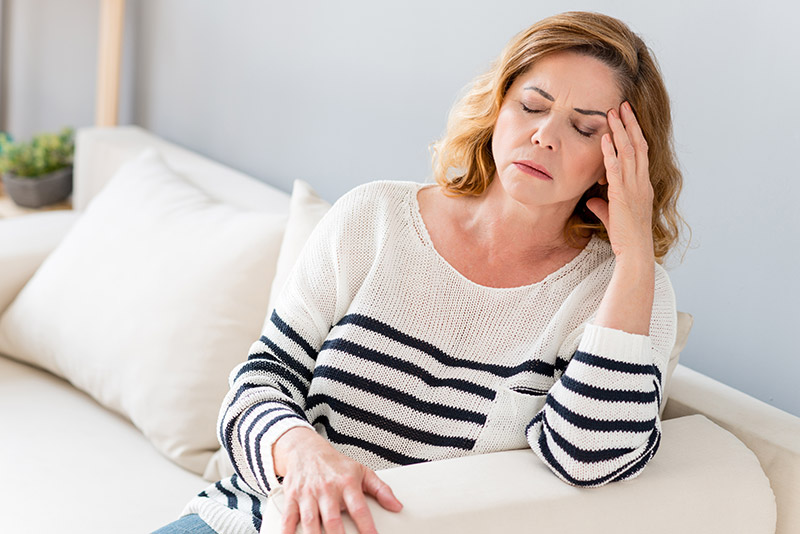
Understanding the Hair Growth Cycle
The hair growth cycle is composed of four stages—anagen, catagen, telogen, and exogen. Each phase has its own timeline, which can be disrupted by age, nutrition, and stress. Firstly, anagen is the active growing phase. The cells of the hair divide rapidly and new hairs form, pushing the hair that is done growing up and out of the follicle. This stage can last anywhere from two to seven years. Next, during the catagen phase, hair follicles shrink and growth slows. The hair detaches from the bottom of the hair follicle but stays in place. The telogen phase is when the new hairs form in follicles that haven’t released hairs already. Finally, during the exogen phase, hair falls from the scalp and new follicles begin to grow.
The Relationship Between Stress and Hair Loss
Significant emotional events like a divorce or the loss of a loved one can put your body under extreme stress. Stress can disrupt the anagen phase by pushing hair into the resting phase so the scalp doesn’t produce new hair strands. With this type of stress-related hair loss, known as telogen effluvium, hair falls out two or three months after the stressful event. The good news is that stress-related hair loss often starts to grow back within six to nine months.
Another type of stress-induced hair loss is called alopecia areata, in which white blood cells attack the hair follicles. Hair typically falls out in patches within weeks of the stressful event, but regrowth is eventually possible.
How to Improve Stress-Related Hair Loss
These types of stress-related hair loss can be prevented and improved upon with the right hair-care practices.
Give Yourself Scalp Massages
A scalp massage is a lifesaver when it comes to relieving stress and reducing tension. Scalp massages are known to stretch cells of hair follicles, which stimulates thicker hair growth. They may also help dilate blood vessels underneath the scalp to promote healthy hair growth. Give yourself a relaxing massage by using your fingers to apply light to medium pressure to your scalp for a few minutes every day.
Get Your Vitamins
Supplement your diet with essential vitamins to support healthy hair. Consider taking vitamin A as it is known to help in the production of sebum, which moisturizes the scalp and hair, and promote hair growth. Be mindful that too much vitamin A can lead to hair problems. Additionally, biotin plays a big role in keratin production and is associated with increased follicle growth. Vitamin C is another key vitamin to fortify strong hair as it supports your body’s production of collagen and has antioxidant properties to fight free radicals from damaging your hair.
Low levels of vitamin D have been linked to hair loss, so consider including it in your diet by eating fatty fish, mushrooms, and fortified foods. Vitamin E is an antioxidant that helps prevent oxidative stress caused by free radicals. Also, an iron deficiency is commonly linked with hair loss. Iron helps red blood cells deliver oxygen to your cells, which helps promote hair growth.
Try a Hair Growth Serum
Many hair growth serums are packed with proteins and antioxidants to improve blood flow to the scalp. The Superpower Fortifying Hair & Scalp Serum by Better Not Younger, is formulated with a mighty blend of ingredients to nourish the scalp and encourage healthier hair growth. This serum rebalances scalp oils, soothes the skin and hair at the roots, and reverses follicle fatigue to promote new hair growth. Look for a natural growth serum with ingredients like niacinamide and caffeine. Niacinamide enhances the appearance and feeling of the hair and scalp, while caffeine may rejuvenate the scalp at the roots to promote stronger hair growth.
Minimize Stress When Possible
It may take some practice, but learning how to manage your stress will work wonders on preventing stress-related hair loss in the first place. From practising deep breathing techniques to exercising regularly and spending time in nature, it’s important to take time to relieve stress whenever possible.
Many women experience hair loss after a significant emotional event. Stress pushes the hair out of the anagen phase directly into the telogen phase, causing hair to shed abnormally. Don't fear, stress-induced hair loss typically grows back within a few months. From giving yourself daily scalp massages to improving your vitamin intake and practising stress-management techniques you can prevent hair loss and encourage new growth.
Hits: 15987 | Leave a comment
Tags:hair growth, hair loss, stress, health

